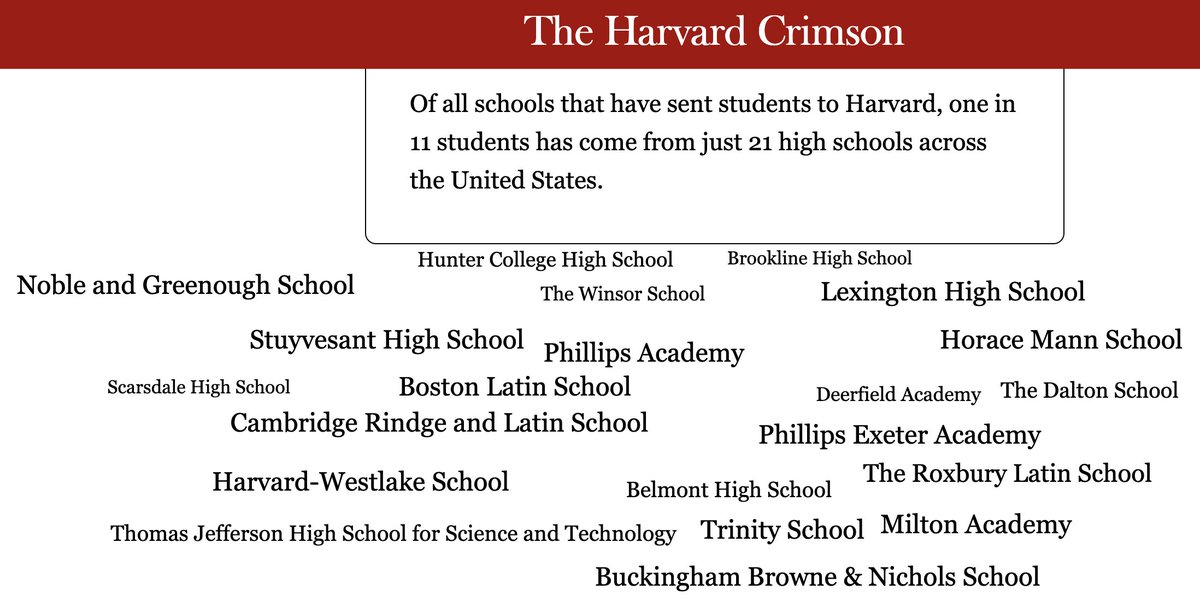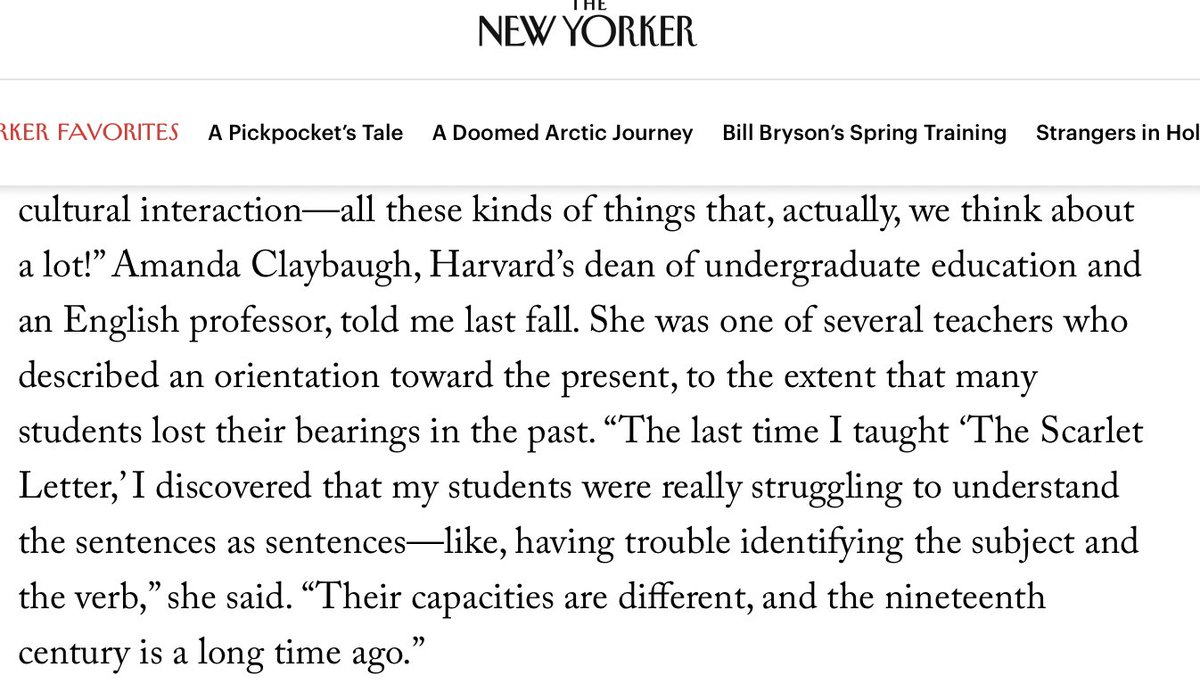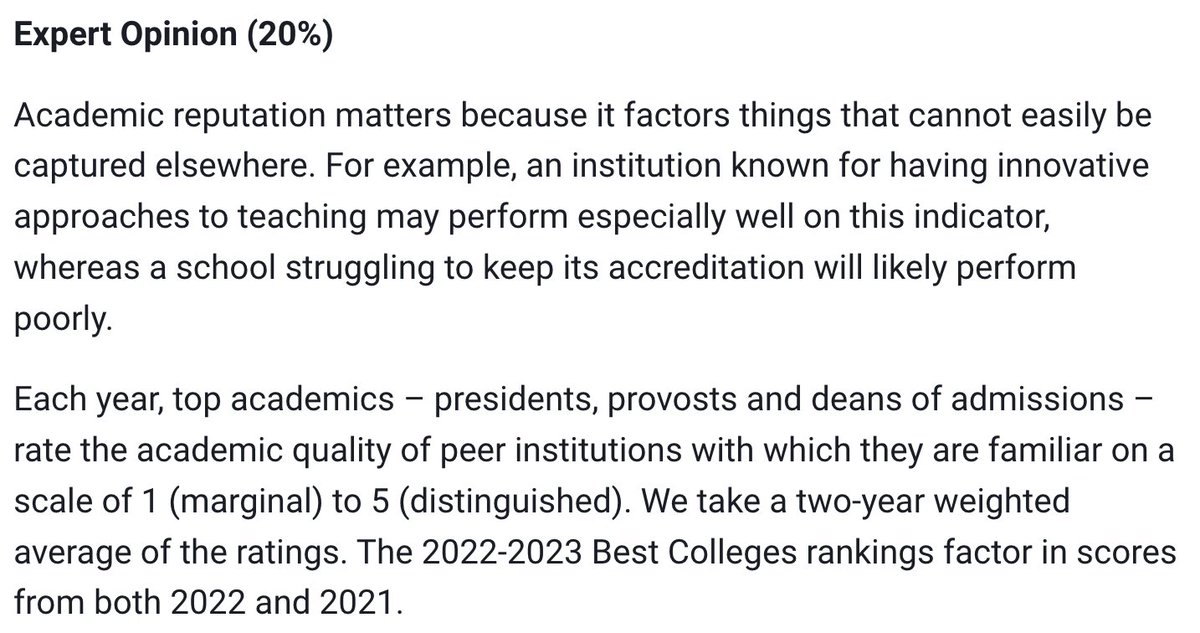Most (all?) schools should be test optional, but that decision should be based on facts. Louis Menand is just wrong in this @NewYorker piece. Not sure what the basis for his claim it. Grades are better at predicting GPA and graduation, to be sure, but the gap is not large. 

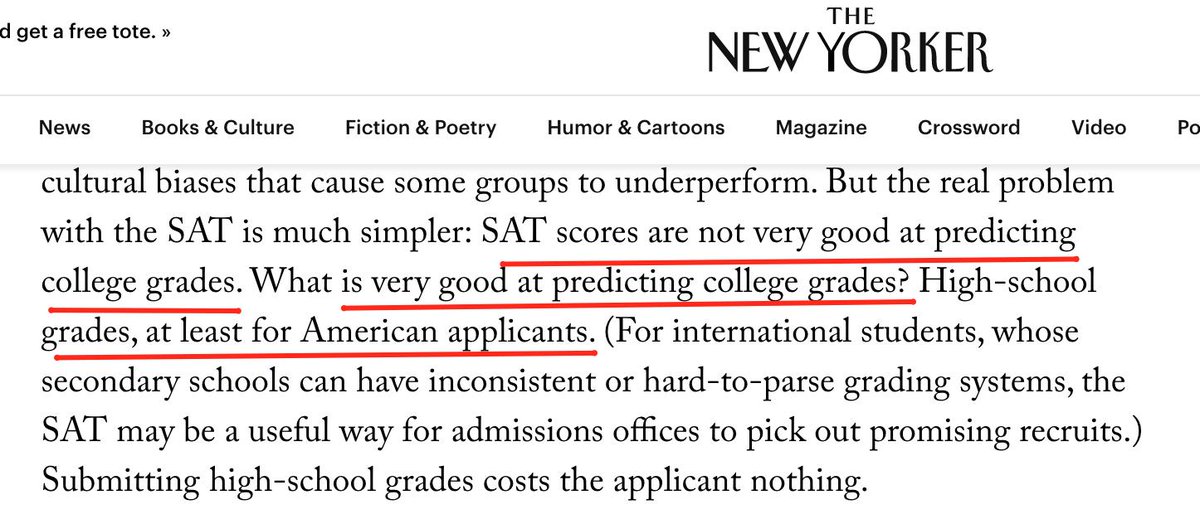
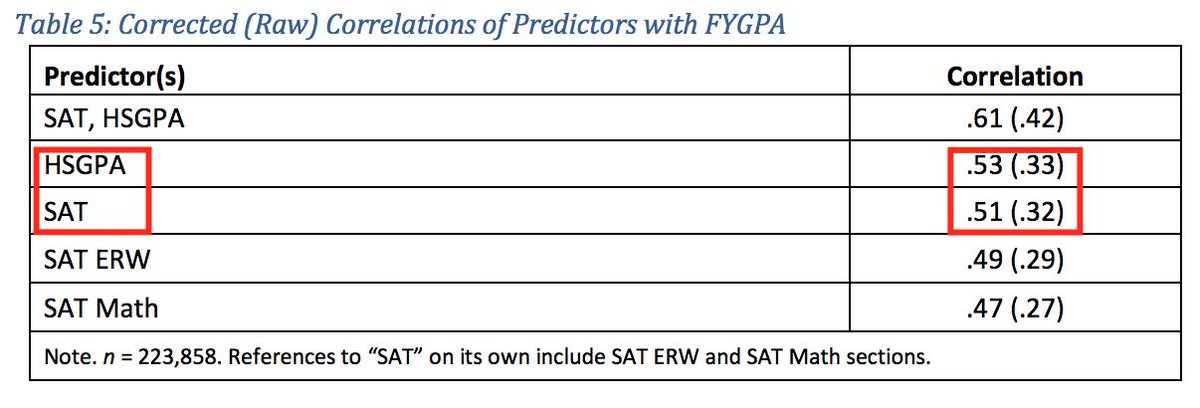
If Professor Menand wants to call out something gross about the tests, he might look at how his employer uses them in academic ratings. Harvard thinks that there is a real difference between a score in the 790-800 range, one in the mid-700s, and one in the low 700s. 

Let's just throw in here that the margin of error on the SAT is +/- 30 points, so that we should be really careful about looking at a 760 or a 790 as telling us anything different about an applicant. It's why the obsession with the 700s/1400s (1500s!) is so deeply harmful. 

That obsession is a boon to no one but the test prep industry.
More errors from Luke Menand in this @NewYorker review. You can dispute the conclusions to be drawn from the CB study of grade inflation (I have in print) but it's just not true that grade inflation has been uniform. Grades have gone up more at private schools than at publics. 

This claim is questionable too, or at least speaks to the issue of drawing to heavily on Chetty for precise claims. @OppInsights looked at one, maybe two, cohorts. This claim about @Princeton is true for that cohort, but Princeton now has the highest Pell rate in the Ivy League. 

While I'm here, I'll just add that Menand's reading of @DSMarkovits Meritocracy Trap is so bizarre that I'm not sure he and I read the same book. 

One of the most important points @DSMarkovits makes is that the problem with Varsity Blues etc. is that it suggests the big problem is that elite institutions are not living up to the ideal of meritocracy, when in fact the real problem is meritocracy itself.
Menand sounds like Betsy DeVos in some sections, echoing nonsense about the demand for advanced skills in the 21st century workplace. Here's the thing--one of @DSMarkovits key points is that once upon a time industries took professional development seriously. 

They trained workers to do new tasks. Nowadays, companies put that onus on individuals, essentially telling them to go get *another* degree (and more debt) to get the training we want but won't pay for.
In another low moment, Menand suggests that @DSMarkovits offers no solutions to ameliorating the meritocracy trap . . . and then he lists some solutions offered up by Markovits. 

On this point, I absolutely agree. The obsession with @Stanvard_U is wrong-headed, and the real answer to college access is more funding for K-12 and public higher ed. 

One of they key things that people looking at college admissions don't get it the people who work on the academic side and people who work on the admissions side of universities are not just not in contact; they have little clue what the other side does.
Menand thinks low admit rates are signs of greater access, but does he know that Harvard contact about 100K people each year, encouraging them to apply? The vast majority of those students will not have a chance in the application process. 



Perhaps the nadir of this article are its bizarre defenses of legacy preferences. The point of getting rid of legacy preferences is NOT that it will open up a ton more spots at a school. It's that legacy is unethical on its face. 



As always, apologies for typos. #editbutton
• • •
Missing some Tweet in this thread? You can try to
force a refresh


